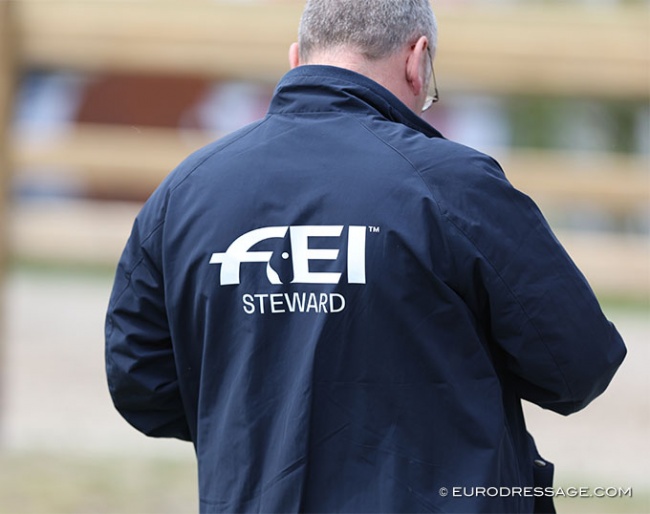
Guest columnist of this week is Christrian Landolt (SUI), who recently resigned as an international FEI 5* eventing judge because of the reluctance of the FEI to address the growing problem of abuse committed against officials, and more generally, its lack of respect for them.
Time to Empower and Professionalise the Officials
Equestrian sports have been under huge scrutiny recently, at times fairly and at times dubiously from anonymous keyboard warriors. The public’s perception of our interactions with horses is fully understandable, even for the more educated of us. Dressage has been the main target, but let’s not fool ourselves, all disciplines are endangered. I find therefore interesting that the articles I have read focused only on solutions for dressage.
To me a two-prong global action is needed across disciplines:
- Give more power and accountability to officials. In short, we need to make our officials true professionals with a remunerated career and with the appropriate support. This in turn will enable a professional management since they will no longer be volunteers but employees.
- Create a new category of officials to be in charge solely of the ethics and welfare. How they would impact the competition would have to be discussed. Although one would hope that current officials can implement better ethics across the disciplines, we know it is not always the case.
Obviously the second point may not be required if the education of officials on ethics and welfare is more thorough AND they implement it.
Officials are the police of our sport. They need to be sharp, effective, consistent and be more readily prepared to dish out sanctions. They do require to be performance managed on the ground – not just in the classroom like now. One issue is that most federations’ management is done by people who have never officiated. Would you ever see a hotel General Manager who has not previously worked as a chef, housekeeper, waiter? It is therefore impossible for the management to performance manage officials correctly. If this were done like in any ordinary businesses, then personal development, promotion, sanction and possible demotion would be aptly implemented. In my 25 years as an FEI eventing official, I have only heard of one demotion, not quite representative of the true picture. Federations are very quick to demand sanctions against offending riders, yet they are very slow if not reluctant to address underperforming officials.
It is encouraging to hear of the Swiss Federation's innovative initiative with their project of Officials Academy which aims precisely at increasing the level of an all round expertise for all their officials, including specific modules on horsemanship as well as random assessment at competitions.
Finally consistency: It is time to have similar rules and same implementations across the board, across the world and across the levels. Some examples: why do dressage and eventing have clear guidelines/restrictions on bits, yet in sho wjumping it is a free for all “providing they do not cause injury”. Why is a rider who induced blood in eventing sanctioned by a yellow card and not in other disciplines? It is also time for top nation riders and famous riders to be sanctioned in the same way unknown riders from lesser nations are. These are all too often used as scape goat. Do we really think at the recent world Cup final that blood issue would have been so readily swept under the carpet had the rider not been so famous?
These are a few examples that leave the public at a loss.
Related Links
Christian Landolt: "The FEI Needs to Value and Support Its Officials More"
Angelika Fromming & Hannes Müller: "Change of Priorities - Training Scale over Quality of Movement"
Thomas Baur: "Time for Change - Time for Action"
Dinja van Liere on Streaming the Warm-Up: "We are put under a magnifying glass which is undermining the entire sport"
IDRC/IDOC/IDTC Joint Letter: "A Wake Up Call for the Vulnerability We Now Face"